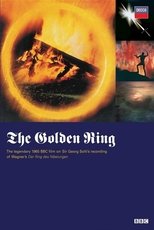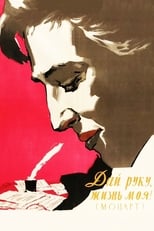

Gottlob Frick
Born: July 28, 1906
Died: August 18, 1994
Died: August 18, 1994
Movies for Gottlob Frick...



Title: Weber: Der Freischütz
Character: Kaspar
Released: June 1, 1968
Type: Movie
Director Rolf Liebermann’s 1968 filmed-for-TV production of Carl Maria von Weber’s opera, with the Hamburg State Opera performing an adapted stage version. Soloists include Bernhard Minetti, Toni Blankenheim and Arlene Saunders. The conductor is Leopold Ludwig.




Title: The Golden Ring
Character: Himself - Singer (Hagen)
Released: December 26, 1965
Type: Movie
Watching the Vienna Philharmonic, Georg Solti, and a stellar cast record Wagner's immense Götterdämmerung for Decca in the fall of 1964 provides a thousand lessons in the art of working under pressure. For this classic documentary, The Golden Ring, a BBC camera crew eavesdropped as producer John Culshaw guided his engineering team through tricky technical maneuvers far removed from the relative ease of modern digital editing. What utter concentration and focus Birgit Nilsson, Wolfgang Windgassen, Gottlob Frick, and Dietrich Fischer-Dieskau bring to their collective and individual singing! Solti, for his part, oozes energy and exactitude as he pleads for greater precision and frets over details in the car en route to the sessions.


Title: Daphne
Character: Peneios
Released: December 16, 1964
Type: Movie
Daphne, Op. 82, is an opera in one act by Richard Strauss, subtitled "Bucolic Tragedy in One Act". The German libretto was by Joseph Gregor. The opera is based loosely on the mythological figure Daphne from Ovid's Metamorphoses and includes elements taken from The Bacchae by Euripides.


Title: Mozart
Character: Sarastro (in "The Magic Flute")
Released: June 9, 1955
Type: Movie
This movie takes place during the premiere of Mozart's Die Zauberfloete (The Magic Flute). Not really depicting his entire life and loves, much of this is fictionalized scatology. Although not without basis in fact, Mozart has attained a somewhat colorful reputation and this is really just more of the same. The music is a joy, but the movie bogs down in titillation. Mozart's last days were lived in poverty and disgrace--stemming chiefly from his embracing of the Freemason stance, which was essentially a heresy in Austria and the rest of Europe at that time. None of this is depicted and even a satyr could not sustain the lifestyle Mozart has been portrayed as having here. Still, this is an interesting movie and worth a listen to.
